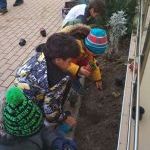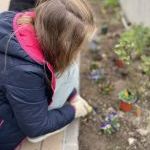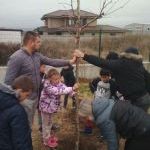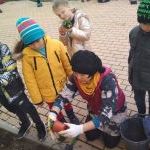Eco-School training
The Sunbeam school are engaged in the Responsible Affordable Eco-School Training (RAEST) project. It aims to prepare schools to become eco-schools and make students ecology-resilient. Teachers and schools often do not have the training or financial means to become eco-friendly aware organisations, but this project aims to find a workable and affordable solution, involving the local community. The training is provided through dedicated materials, live books, animated videos, a mobile application and illustrated booklet.
Website
Responsible Affordable Eco-School Training (RAEST)
Useful links
Country
Media
Useful links:
The Eco-Schools programme in the UK provides a range of support to schools that wish to become an Eco School.
* TOP TIPS *
'Consider planting some native trees in your school to attract native wildlife'
How is the project linked to climate change and sustainability?
The project introduces affordable ecology training into the existing curriculum as part of STEM (Science, Technology, Engineering and Mathematics) courses in Bulgaria, Greece, Turkey and Slovenia. This could also be provided as an extra-curricular activity. The training enables the engagement of students of today to protect the climate of tomorrow. Through this project, young people have the power to be the change for sustainability that our world needs by engaging them in fun, action-oriented and socially responsible learning.
Who is involved?
The project works with primary schools and targets school teachers, school networks, students and the wider community.
How are the participants involved?
The Sunbeam school has taken part in growing and planting activities in the school grounds and local community. The whole community of children, parents and teachers united around the tradition of planting trees, shrubs and flowers in the school grounds. Their 'green yard' stretches over two hectares, and includes dozens of fruit trees, shrubs and other plant species that students take care of with great love. Thus, they learn to love nature, to know plants and to be able to grow their food in a healthy and environmentally friendly way. They practice biodynamic farming and gladly consume the fruits and vegetables they have grown! The school runs a number of eco projects - from healthy eating initiatives to inviting beekeepers into the school.
Key steps:
There are a number of key areas that the RAEST project explores, and you can try to implement in you own school:
- find out about affordable eco-school ideas for schools - tree planting at Sunbeam is a good example and can be scaled up from one tree to many, depending on you space and budget
- look out for training opportunities for your staff and organisation - there is alot of free training material available online
- explore whether you can get support from parents, volunteers or NGOs - they can help with experitise, free materials and manpower!




